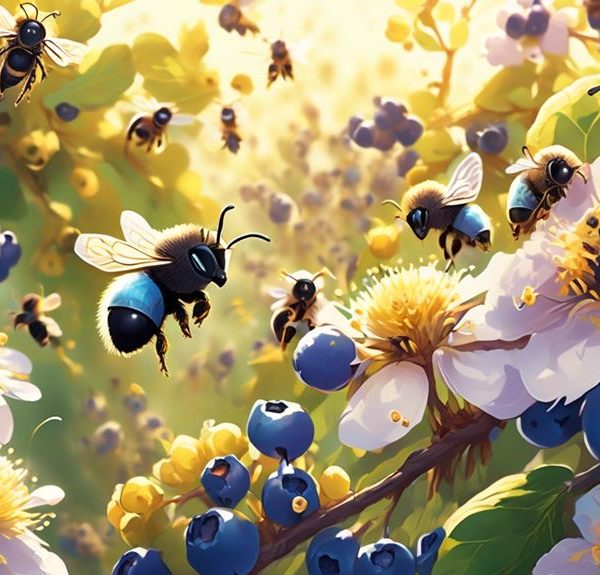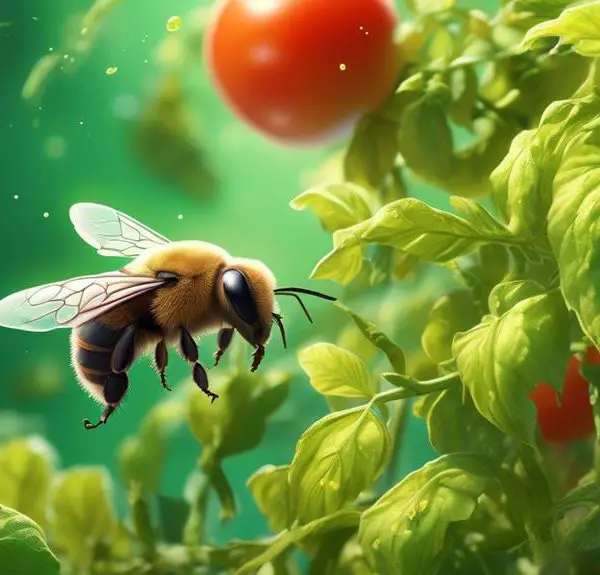Dive into the intriguing world of Mason bees to explore their unsung role in pollinating our food crops.
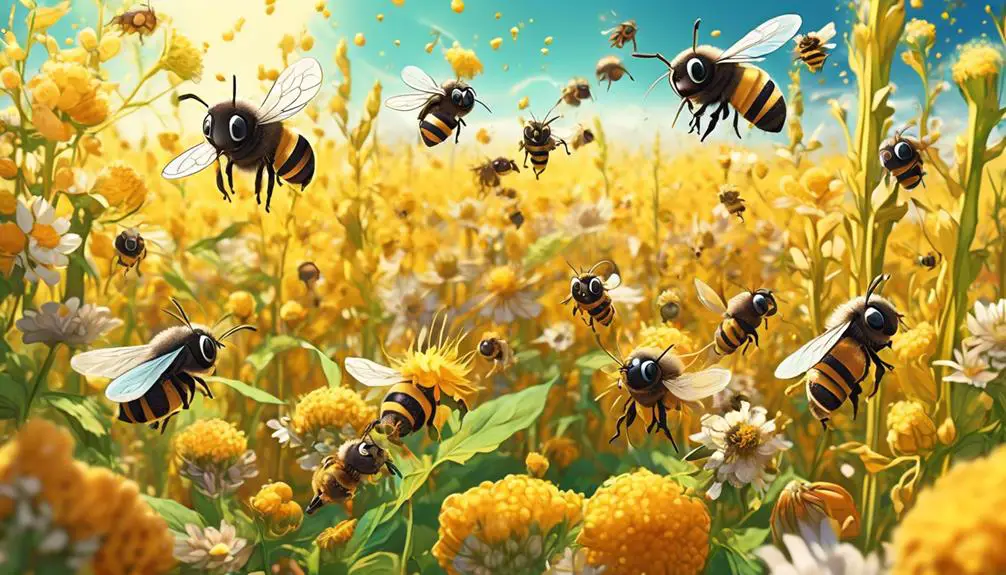
Do Mason Bees Pollinate Food Crops?
Imagine a busy Mason bee, with its iridescent wings shimmering in the sunlight, darting from bloom to bloom in a farmer's field. You might be wondering if these tiny creatures, often overshadowed by their honeybee cousins, have any significant role in crop pollination.
As it turns out, the answer isn't as straightforward as you might think. While they certainly do visit flowers, their role in food crop pollination is a topic that's ripe for exploration.
So, stick around, you're about to uncover the secret world of Mason bees and their contribution to our plates.
Key Takeaways
- Mason bees are efficient pollinators due to their solitary lifestyle and nesting habits.
- Pollination by Mason bees is fundamental for the reproduction of many food crops.
- Mason bees play an instrumental role in pollinating a wide range of crops, promoting biodiversity.
- Promoting Mason bee populations significantly enhances food crop pollination.
Understanding Mason Bees
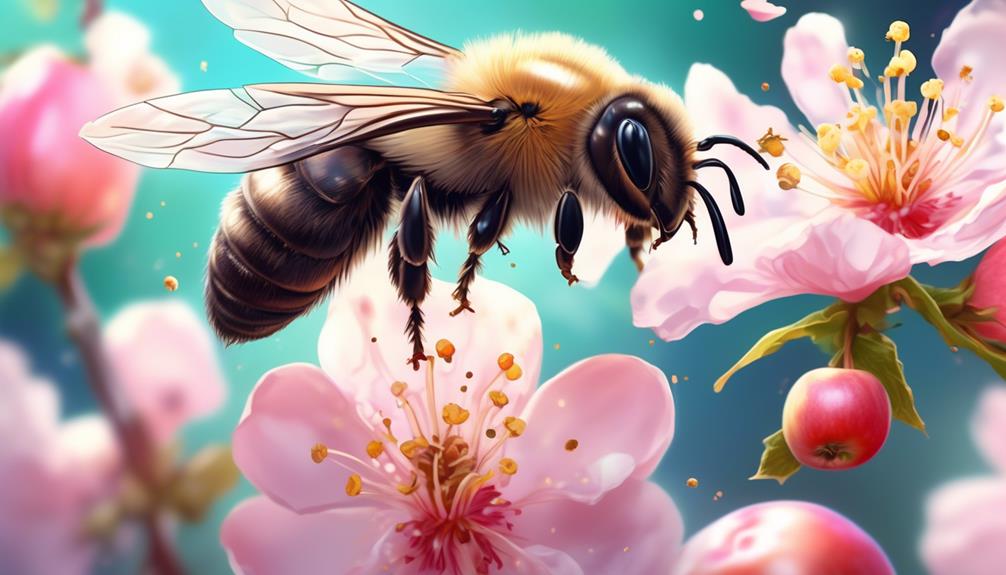
Often overlooked, Mason bees are solitary insects that play a critical role in the pollination of food crops around the world. Unlike honeybees, they don't live in hives or produce honey. Instead, they're named for their unique behavior of using mud to construct their nests, much like masons.
You might be asking, 'Why should I care about Mason bees?' Here's why: they're phenomenal pollinators. Unlike honeybees, which carry pollen on their hind legs, Mason bees carry pollen on their belly. When they visit a flower, more pollen is transferred, making their pollination capacity far more efficient.
Furthermore, they're not aggressive. Their solitary lifestyle means they don't have a hive to protect, so they're less likely to sting. They're also less affected by the pesticides and diseases that are decimating honeybee populations, making them a more sustainable choice for pollination.
Understanding Mason bees can help you appreciate the complex and diverse world of pollinators. By supporting these small but mighty insects, you're contributing to a healthier, more productive environment. Remember, every little bit helps in the grand scheme of things.
The Pollination Process
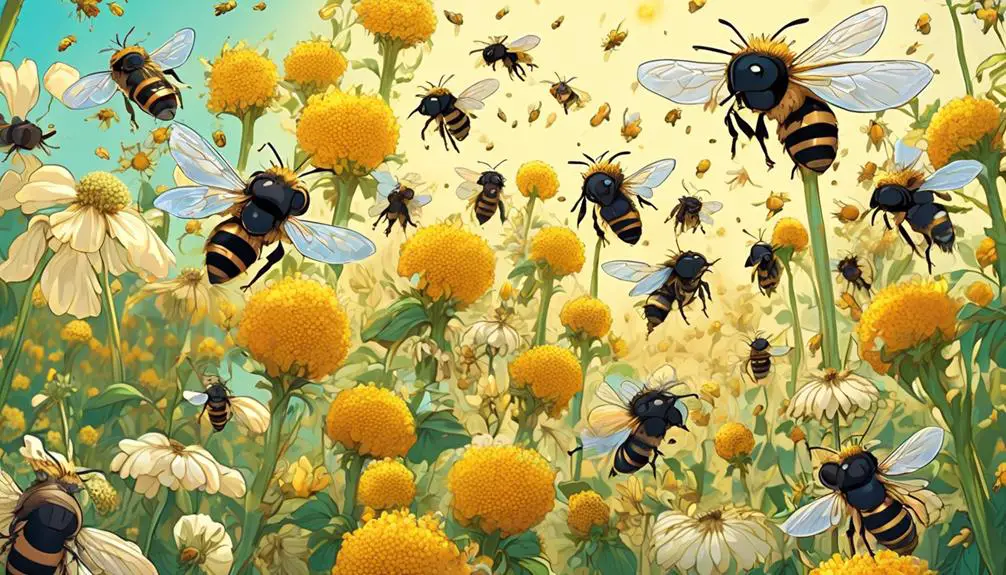
To grasp the pivotal role of Mason bees in agriculture, it's crucial to understand the pollination process they perform with such efficiency. These diminutive creatures, laden with pollen, flit from flower to flower, depositing pollen grains on the female reproductive organs of the plants. This act of transfer, called pollination, is fundamental to the reproduction of many food crops.
In the pollination process, Mason bees are particularly adept. They're solitary bees, meaning they don't live in hives like honeybees. Instead, they nest in holes and cavities, emerging during the spring to mate and gather pollen. As they brush against the anthers of flowers, pollen sticks to the furry bodies of the bees. When they visit another flower, some of this pollen rubs off onto the stigma, the receptive part of the plant's female reproductive system.
Their efficiency lies in their 'messy' pollination style. Unlike honeybees that meticulously pack pollen into baskets on their legs, Mason bees are less tidy, resulting in more pollen being available for transfer. This makes them superior pollinators, critical to the health of our food system.
Role of Mason Bees in Agriculture
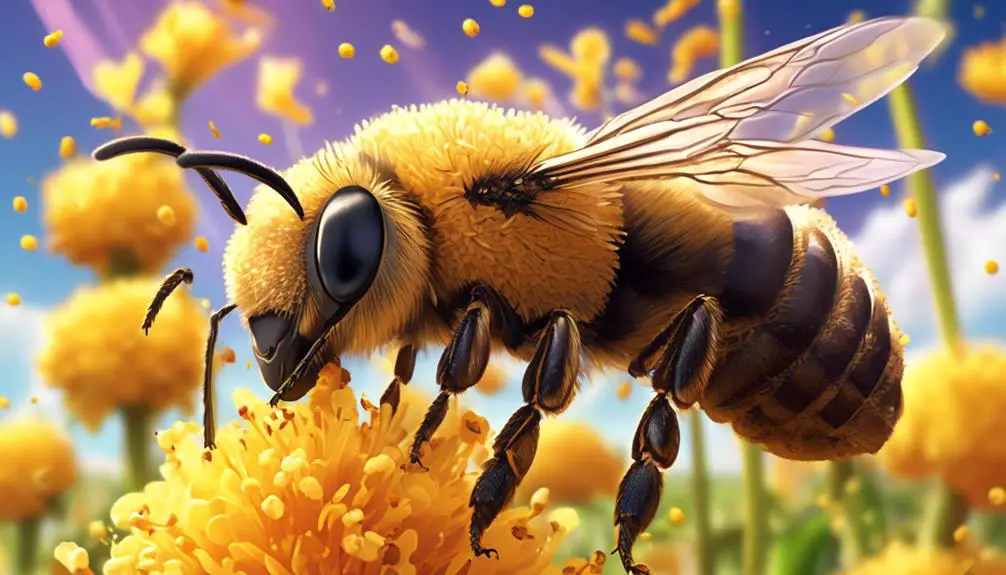
Undeniably, Mason bees play an instrumental role in agriculture, particularly in the pollination of food crops. These industrious creatures are nature's unsung heroes, working tirelessly to ensure our food supply is abundant and diverse.
As a pollinator, Mason bees excel in their role. They're more efficient than honey bees, able to pollinate more flowers in less time. Their hairy bodies are perfect for picking up pollen, helping in the fertilization of flowers.
Here's a table to illustrate the benefits of Mason bees in agriculture:
Benefit | Description | Impact on Agriculture |
|---|---|---|
Efficiency | Mason bees can pollinate more flowers in less time | Increases crop yield |
Variety | They pollinate a wide range of crops | Promotes biodiversity |
Hardiness | Mason bees can tolerate colder temperatures | Extends the pollination season |
Low Maintenance | They don't require much care or attention | Reduces labor and costs |
Non-Aggressiveness | Mason bees are non-aggressive | Ensures safety in farm environments |
Comparing Mason Bees With Honeybees
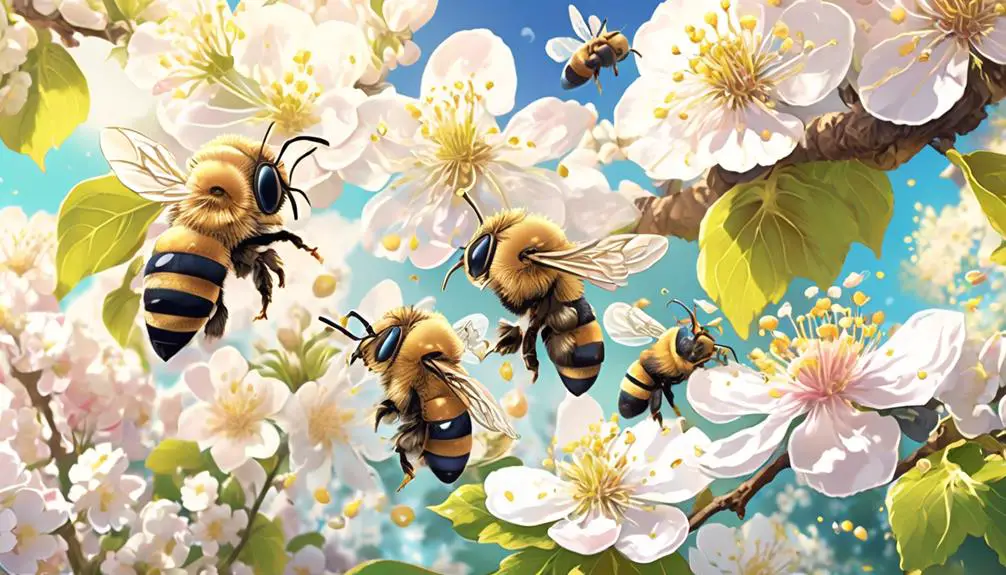
While noting the significant role of Mason bees in agriculture, it's essential to compare them with their well-known counterparts, the honeybees, to gain a deeper insight into their unique pollination abilities.
Mason bees, unlike honeybees, are solitary creatures. They don't live in hives but create individual nests, often in pre-existing holes in wood or hollow stems. This solitary nature minimizes the risk of disease transmission, making them more resilient to threats that often decimate honeybee colonies.
When it comes to pollination efficiency, mason bees outshine honeybees. They're not picky feeders and visit a wider variety of flowers, leading to increased pollination. They also have a unique pollen-carrying method; they store pollen on their abdomen, allowing for more effective transfer. In contrast, honeybees carry pollen in specialized 'baskets' on their legs, which can limit pollen exposure to the stigma of the flowers.
However, honeybees have an edge in terms of honey production. While mason bees contribute significantly to pollination, they don't produce honey. So, if you're aiming for both pollination and honey production, honeybees might be your go-to.
Promoting Mason Bee Populations
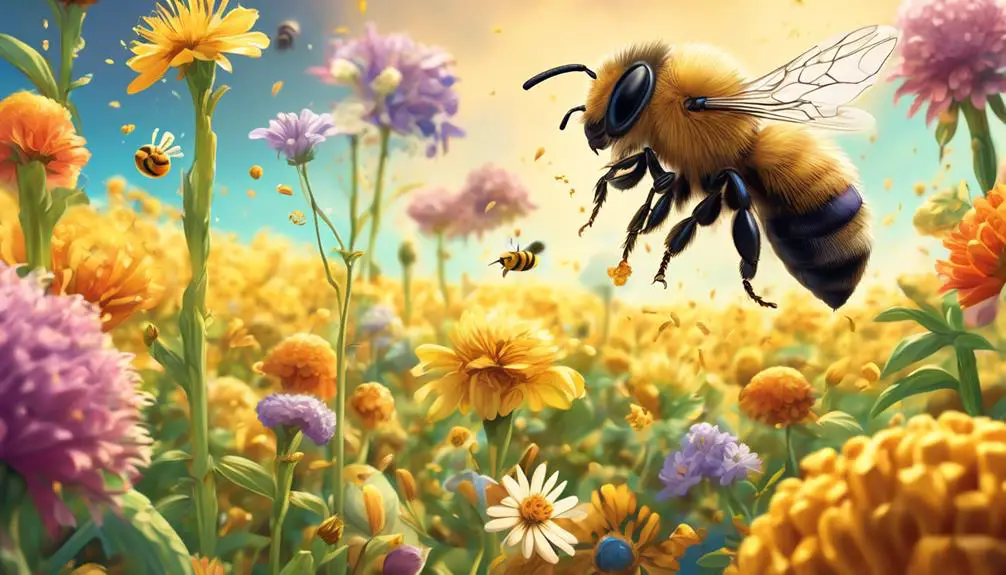
Boosting the population of mason bees can significantly enhance food crop pollination, and there are several straightforward strategies you can employ to achieve this.
Firstly, you can provide a suitable habitat for mason bees. These solitary bees don't live in hives like honeybees; instead, they prefer small, natural cavities. You can create a mason bee house by drilling small holes into a block of untreated wood or by bundling together hollow plant stems.
Secondly, it's important to provide a source of mud, which mason bees use to seal their nests. A patch of bare, damp soil near the bee house should suffice.
Lastly, you'll need to offer a variety of nectar and pollen sources. Mason bees are early spring pollinators, so try to include some early-blooming plants in your garden.
Conclusion
Yes, you've got it right! Mason bees play a pivotal role in pollinating your food crops. They're more efficient pollinators than honeybees, making them invaluable allies in agriculture.
By recognizing their importance and promoting their populations, you're not only supporting these industrious insects, but also ensuring the health and diversity of your crops.
So, consider mason bees next time you're planning your garden or farm strategy. They're small heroes, making a big impact.

